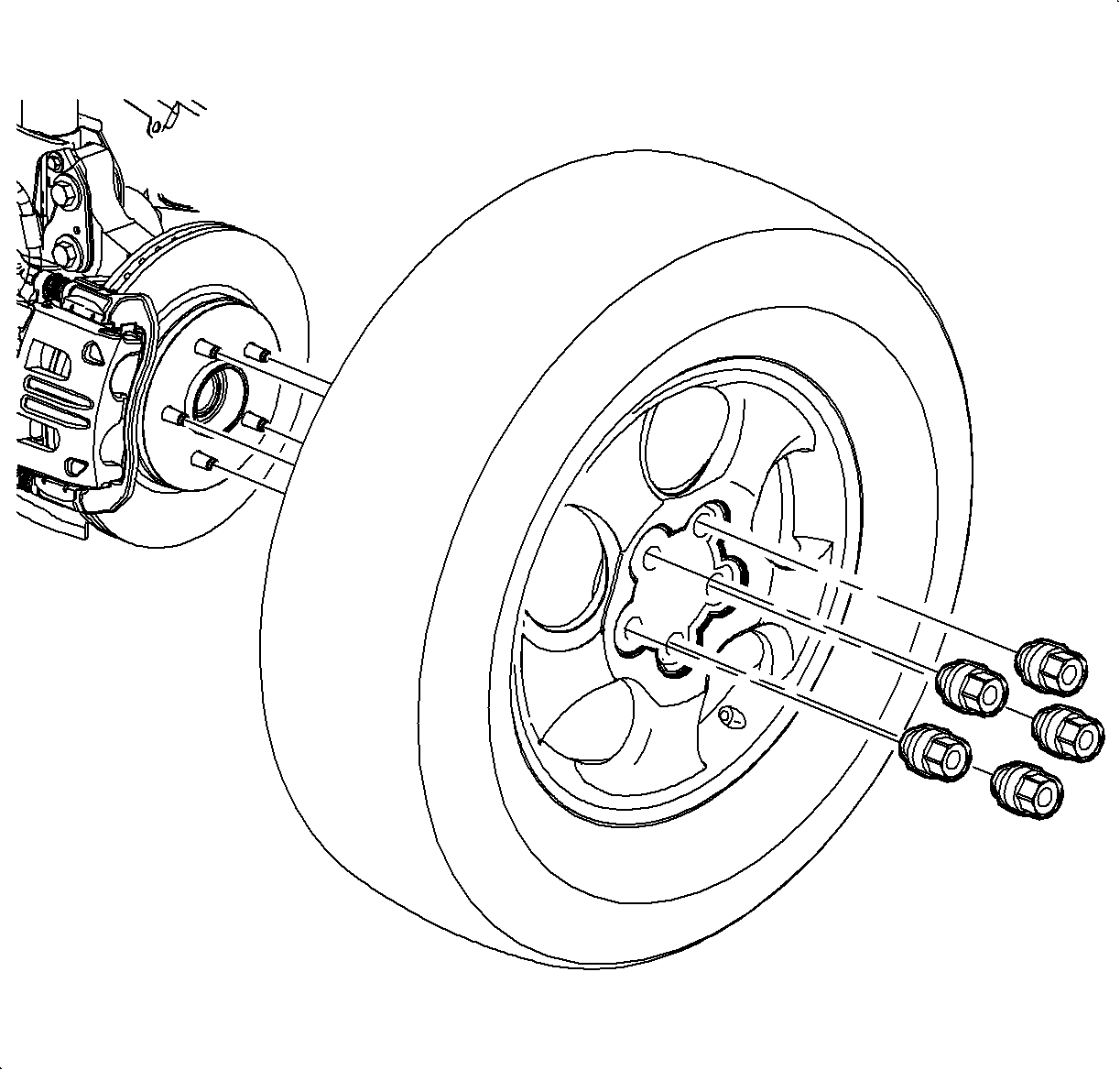Special Tools
| • | J 2619-01 Slide Hammer |
| • | J 24319-B Steering Linkage and Tie Rod Puller |
| • | J 43828 Ball Joint Separator |
| • | J 44015 Steering Linkage Installer |
| • | J 44394 Seal Protector |
| • | J 45341 Rear Wheel Drive Shaft Removal Tool |
Removal Procedure
- Raise and support the vehicle. Refer to Lifting and Jacking the Vehicle .
- Remove the tire and wheel assembly. Refer to Tire and Wheel Removal and Installation .
- Remove and discard the wheel drive shaft spindle nut.
- Remove the outer tie rod end-to-steering knuckle nut. Do not loosen the tie rod end jam nut.
- Using the J 24319-B separate the tie rod end from the steering knuckle.
- Remove and discard the cotter pin from the lower ball joint stud.
- Remove the ball joint stud nut.
- Using the J 43828 separate the lower ball joint stud from the steering knuckle.
- Using a backup wrench on the stud, remove the nut securing the lower stabilizer bar link and disengage the link.
- Disengage the wheel drive shaft spindle from the wheel hub assembly. If necessary, place a wood block against the end of the wheel drive shaft spindle and tap with a hammer to aid removal.
- Assemble the J 45341 and the J 2619-01 to the wheel drive shaft inner tripot joint.
- Disengage the wheel drive shaft from the transmission or power takeoff unit (PTU), if equipped.
- Remove the wheel drive shaft from the vehicle.
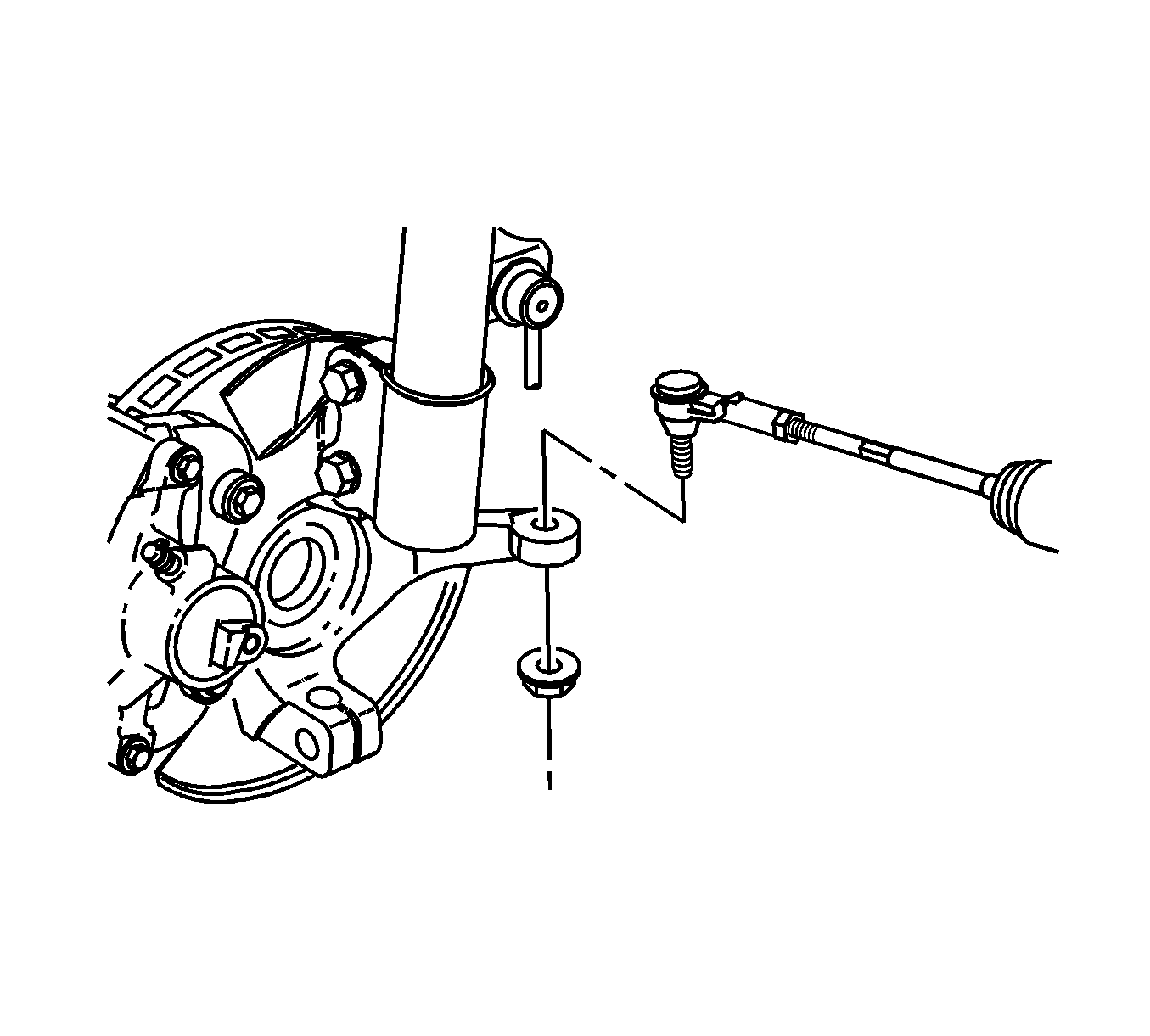
Notice: Hold the ball stud from turning when removing/installing the nut. The boot can become torn and damaged if the ball stud turns.
Important: Do not use a wedge type tool to separate the tie rod end from the steering knuckle.
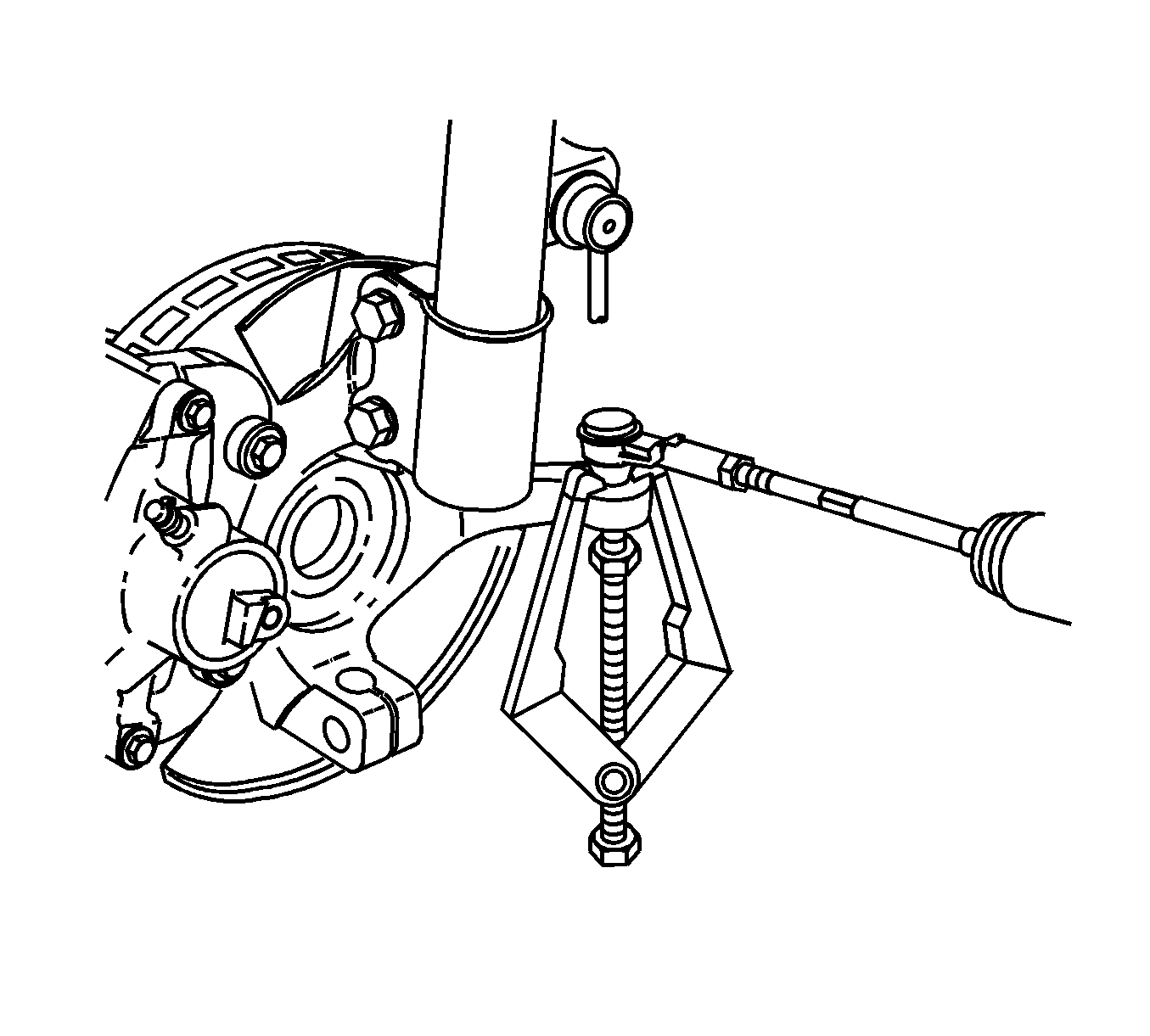
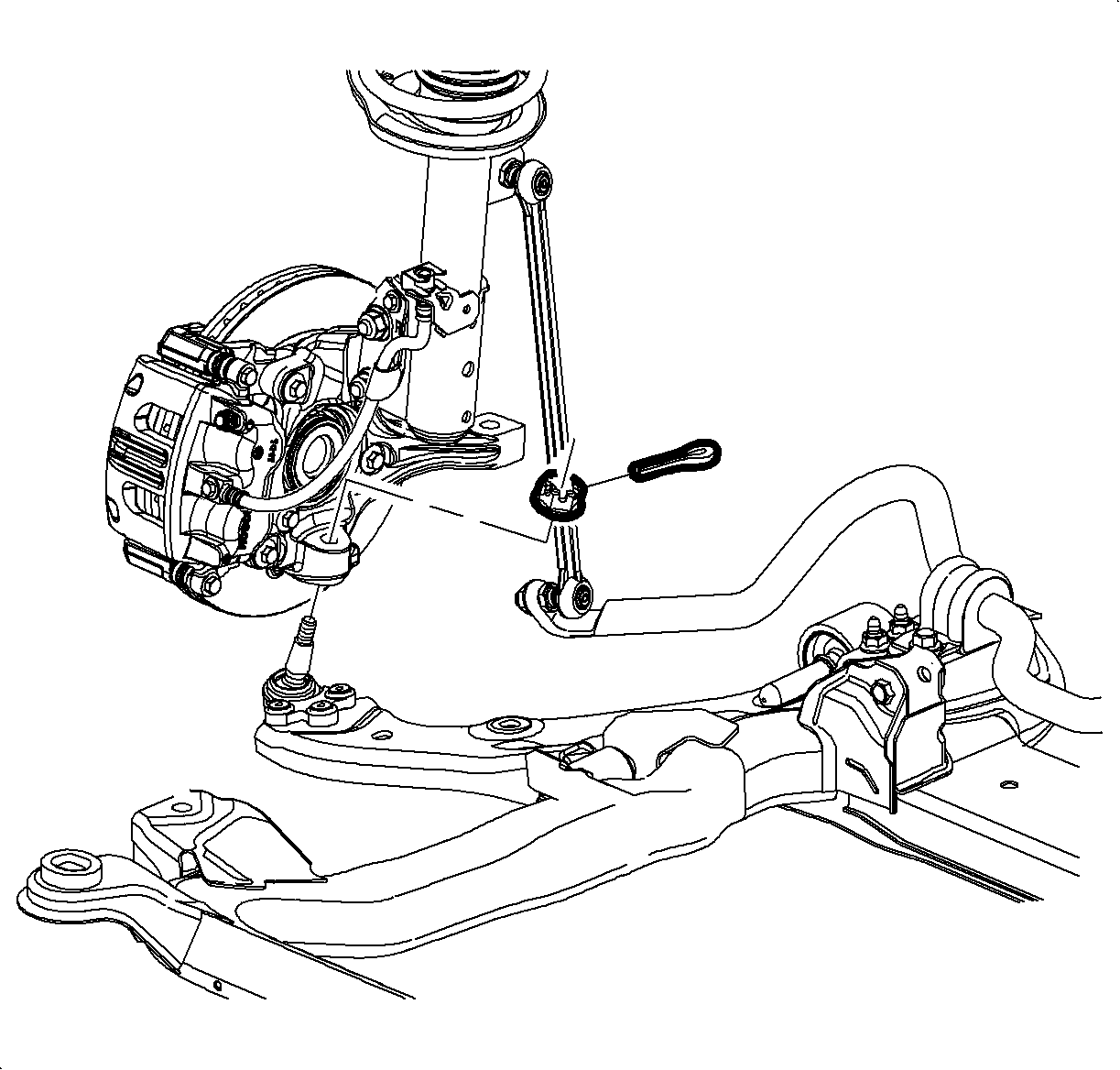
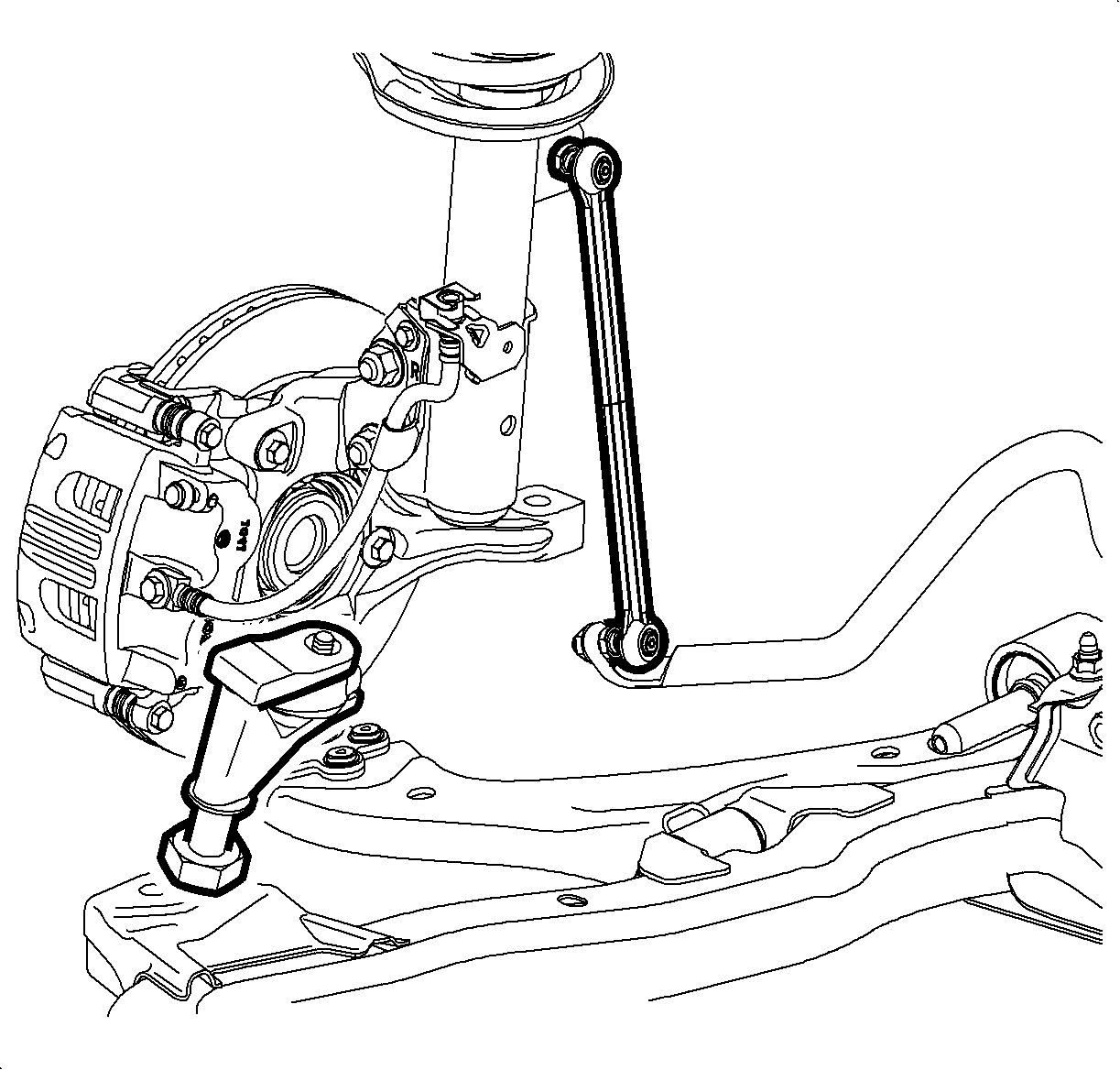
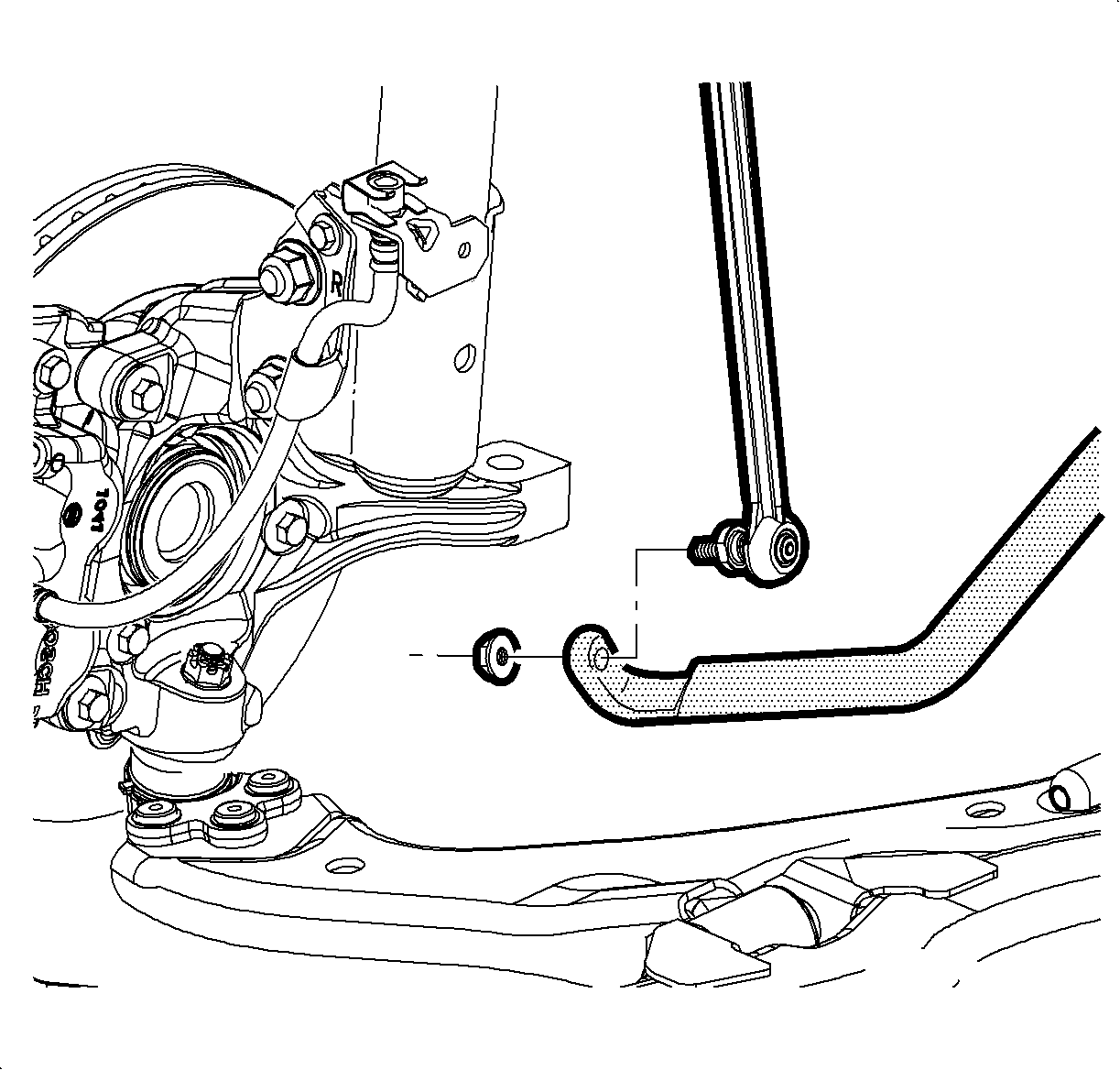
Important: Use care not to damage the joint boot when removing the wheel drive shaft.
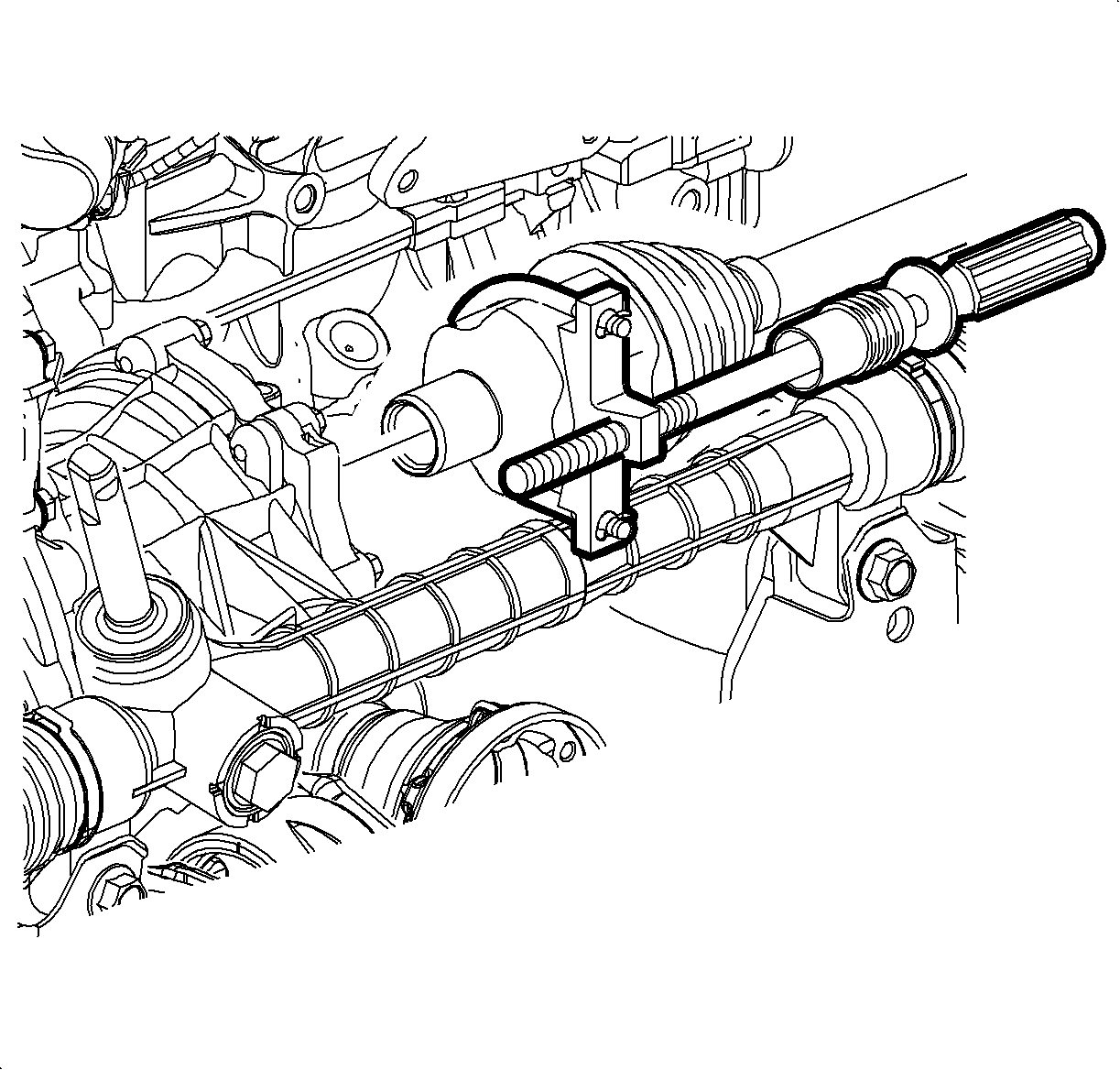
Important: On vehicles equipped with all-wheel drive (AWD), the stub shaft may disengage from the power takeoff unit (PTU). If necessary, cap the opening in the PTU to prevent fluid loss.
Installation Procedure
- Install a new wheel drive shaft retaining ring to the output shaft.
- Install the J 44394 to the wheel drive shaft oil seal.
- Install the wheel drive shaft to the output shaft:
- Insert the constant velocity (CV) joint spindle to the wheel hub/bearing assembly of the steering knuckle.
- Hand install a new wheel drive shaft spindle nut.
- Install the lower ball joint stud to the steering knuckle.
- Install the lower ball joint nut to the stud.
- Install the cotter pin to the ball joint stud.
- If necessary, tighten the nut one additional flat at a time until the castle nut aligns with the hole in the ball joint stud.
- Secure the cotter pin to the ball joint stud by folding one tine over the end of the ball joint stud.
- Cut off any excess length of the cotter pin tines.
- Install the lower link to the stabilizer bar.
- Install a new nut to the stabilizer bar link stud.
- Use a back up wrench on the stud and tighten the nut.
- Install the tie rod end to the steering knuckle.
- Using the J 44015 , pull the stud into steering knuckle.
- Remove the J 44015 from the tie rod end stud.
- Install a new nut to the tie rod end stud.
- Tighten the wheel drive shaft spindle nut.
- Install the tire and wheel assembly. Refer to Tire and Wheel Removal and Installation .
- Lower the vehicle.
- Inspect the transmission fluid level. Refer to Transmission Fluid Check .
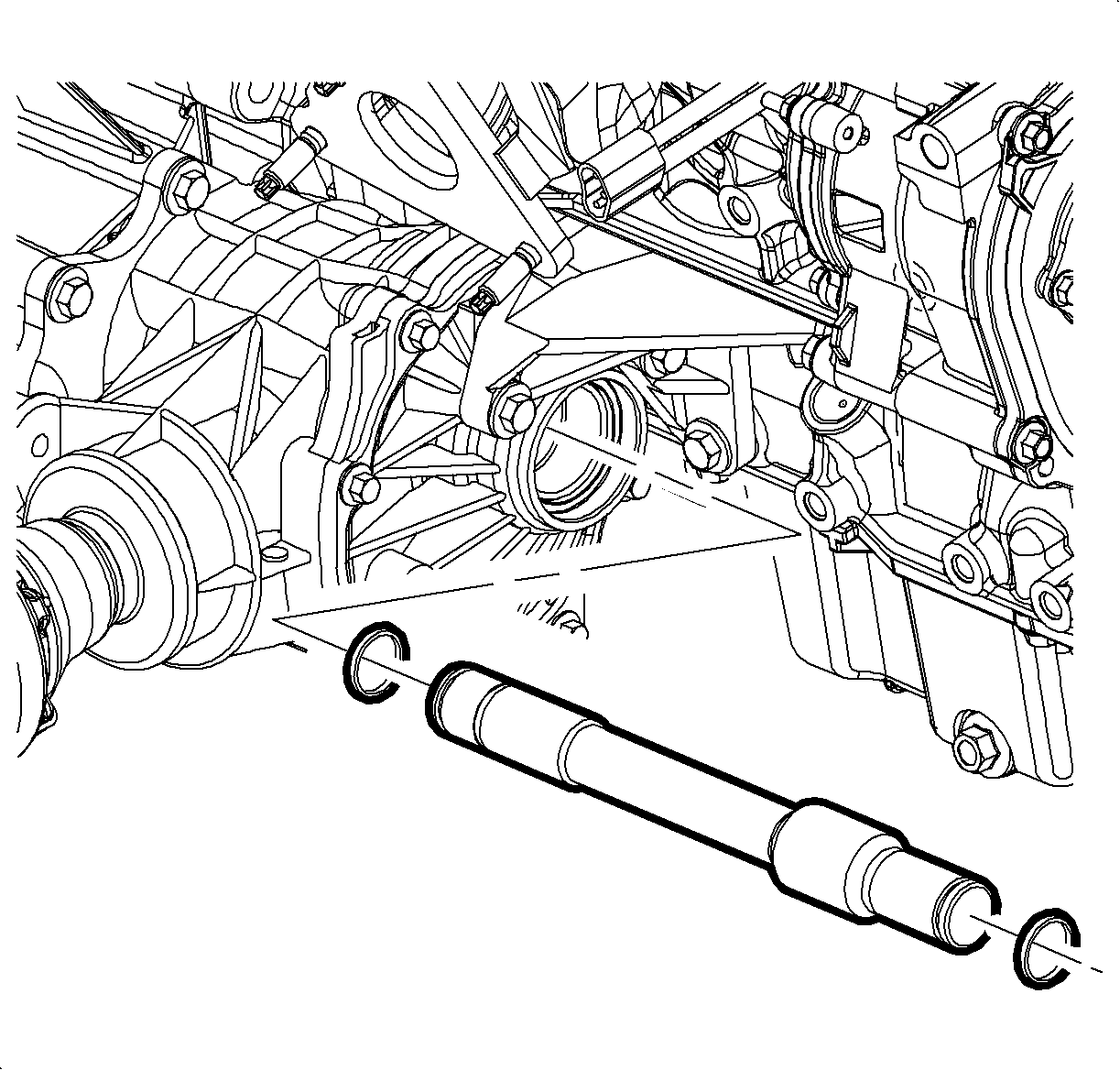
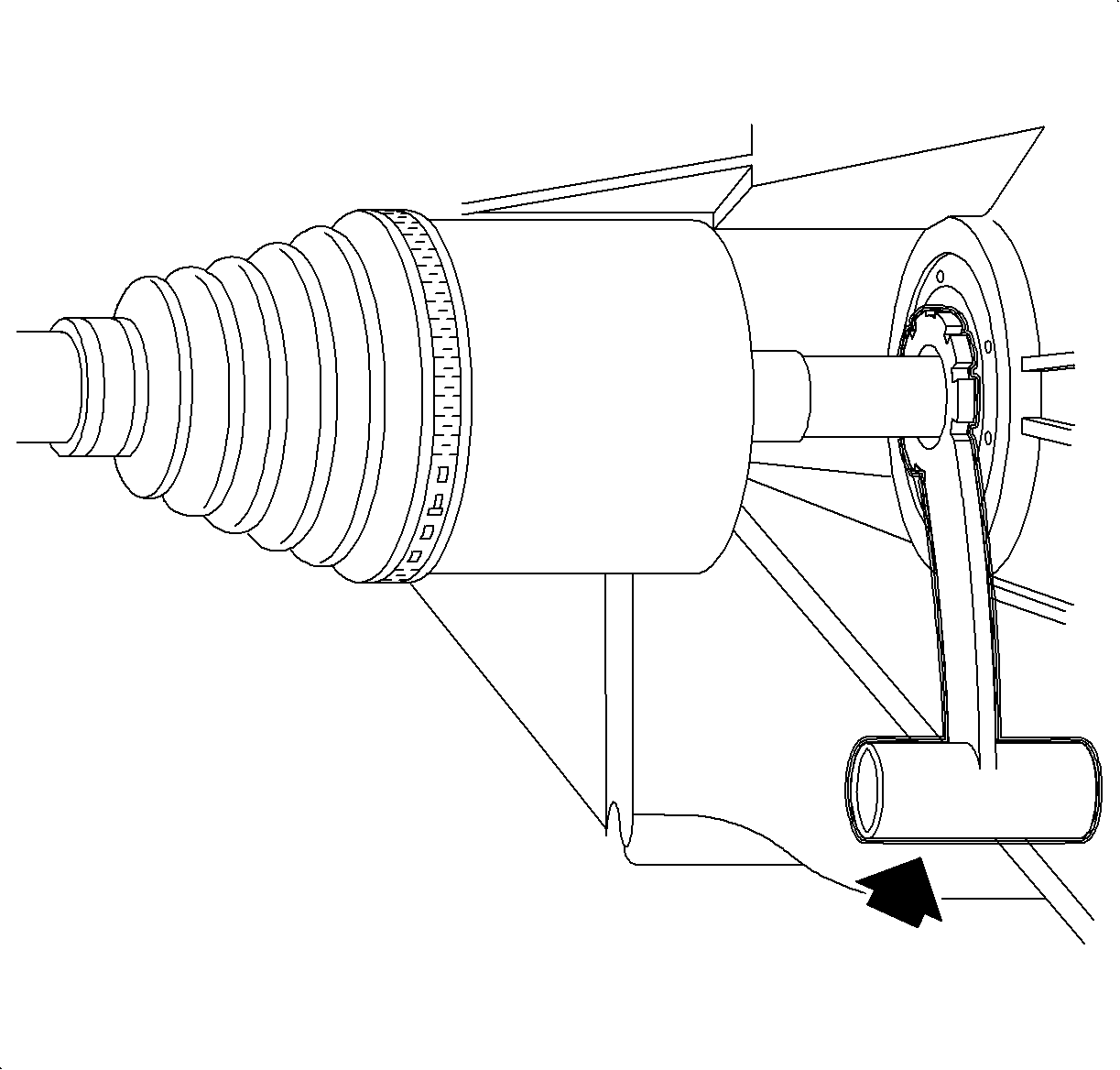
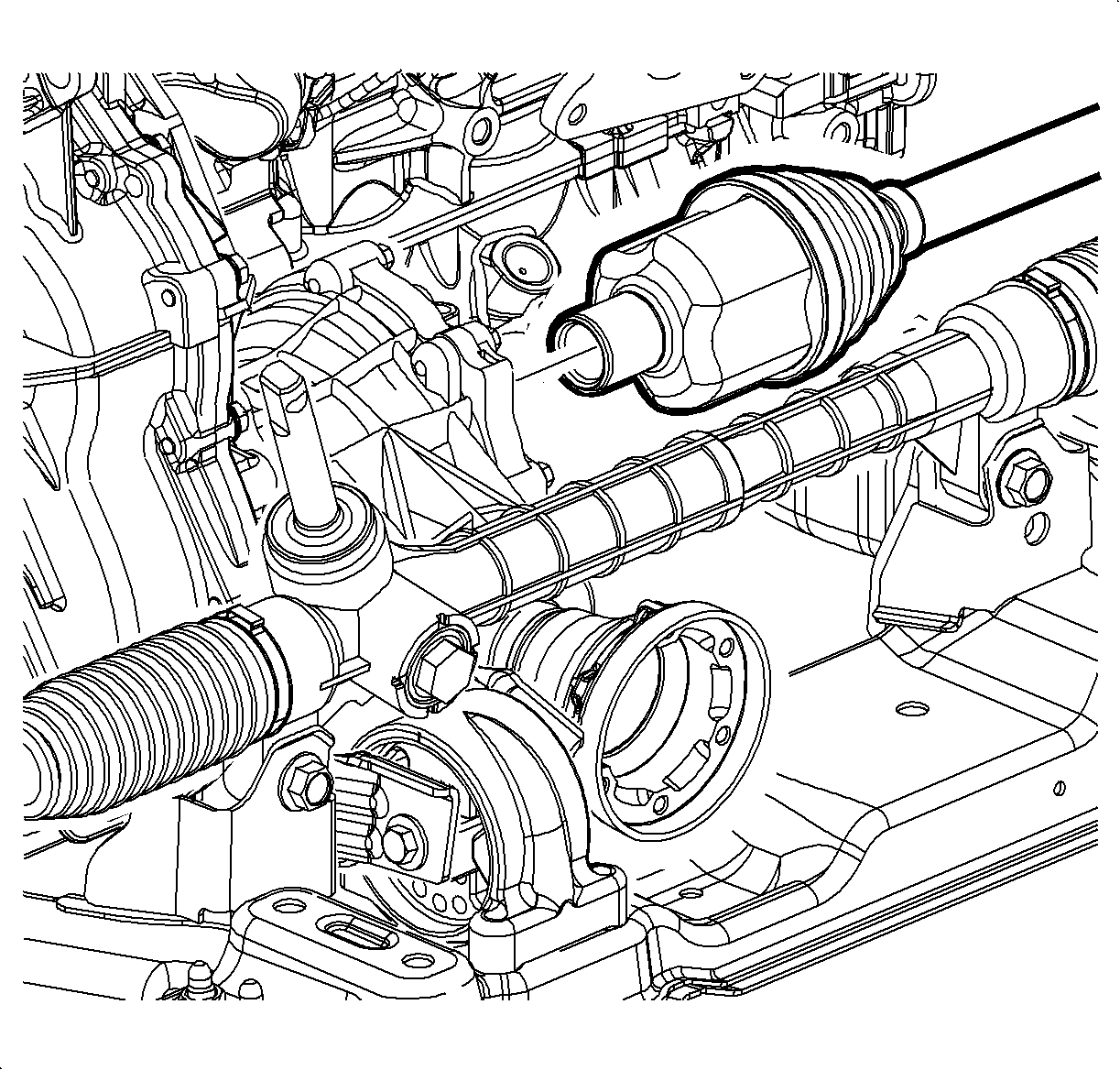
| • | Guide the wheel drive shaft tripot joint squarely onto the output shaft. |
| • | After the splined end of the wheel drive shaft passes the oil seal, remove the J 44394 from the oil seal. |
| • | Firmly engage the wheel drive shaft to the output shaft. |
| • | Ensure that the tripot joint is fully seated on the output shaft by grasping the tripot joint and attempting to pull free of the output shaft. |
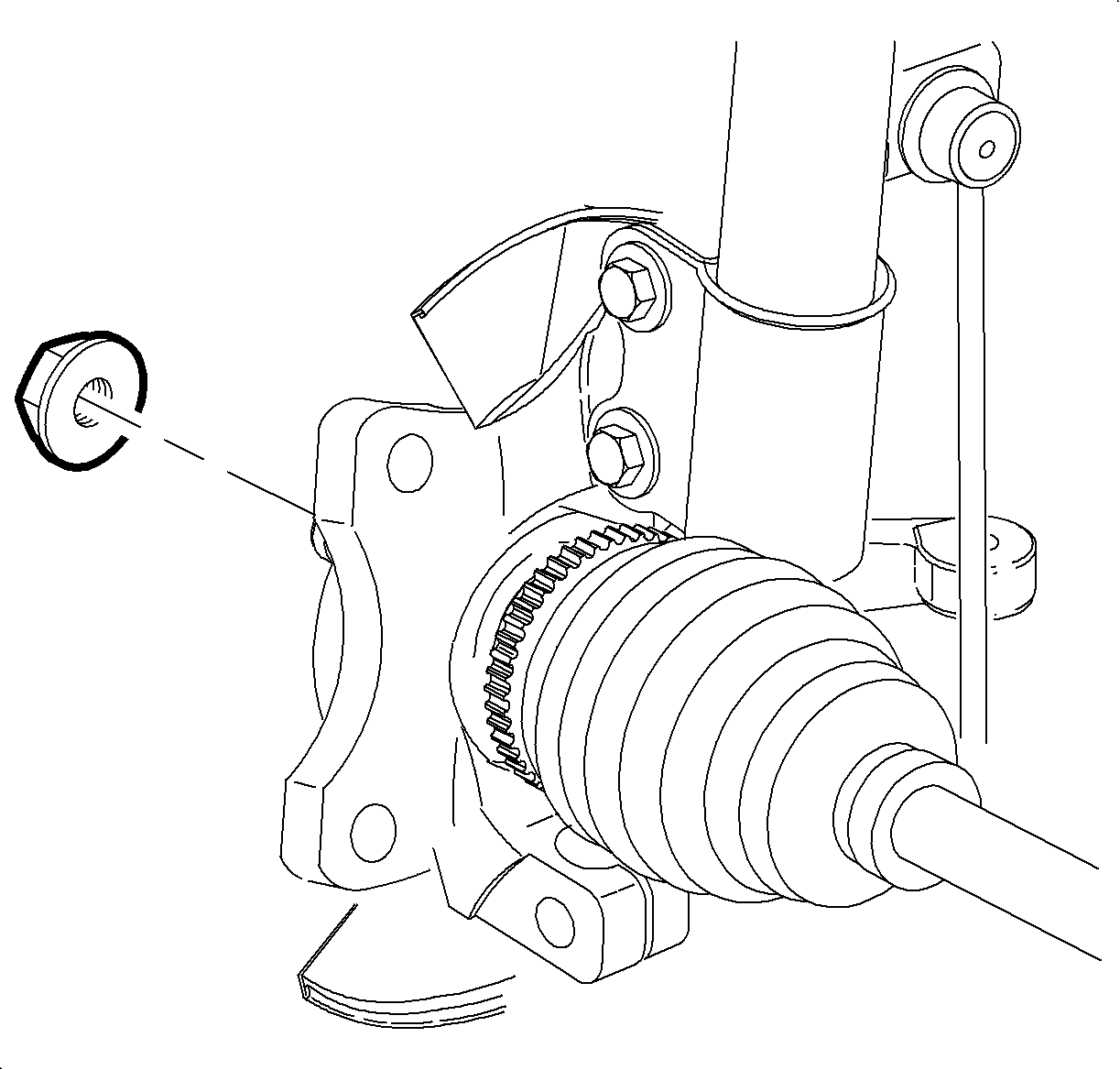

Notice: Refer to Fastener Notice in the Preface section.
Tighten
Tighten the nut to 40 N·m (30 lb ft).

Important: In order to prevent damaging the stabilizer bar link stud seal, do not allow the stud to rotate while tightening the nut.
Tighten
Tighten the nut to 65 N·m (48 lb ft).
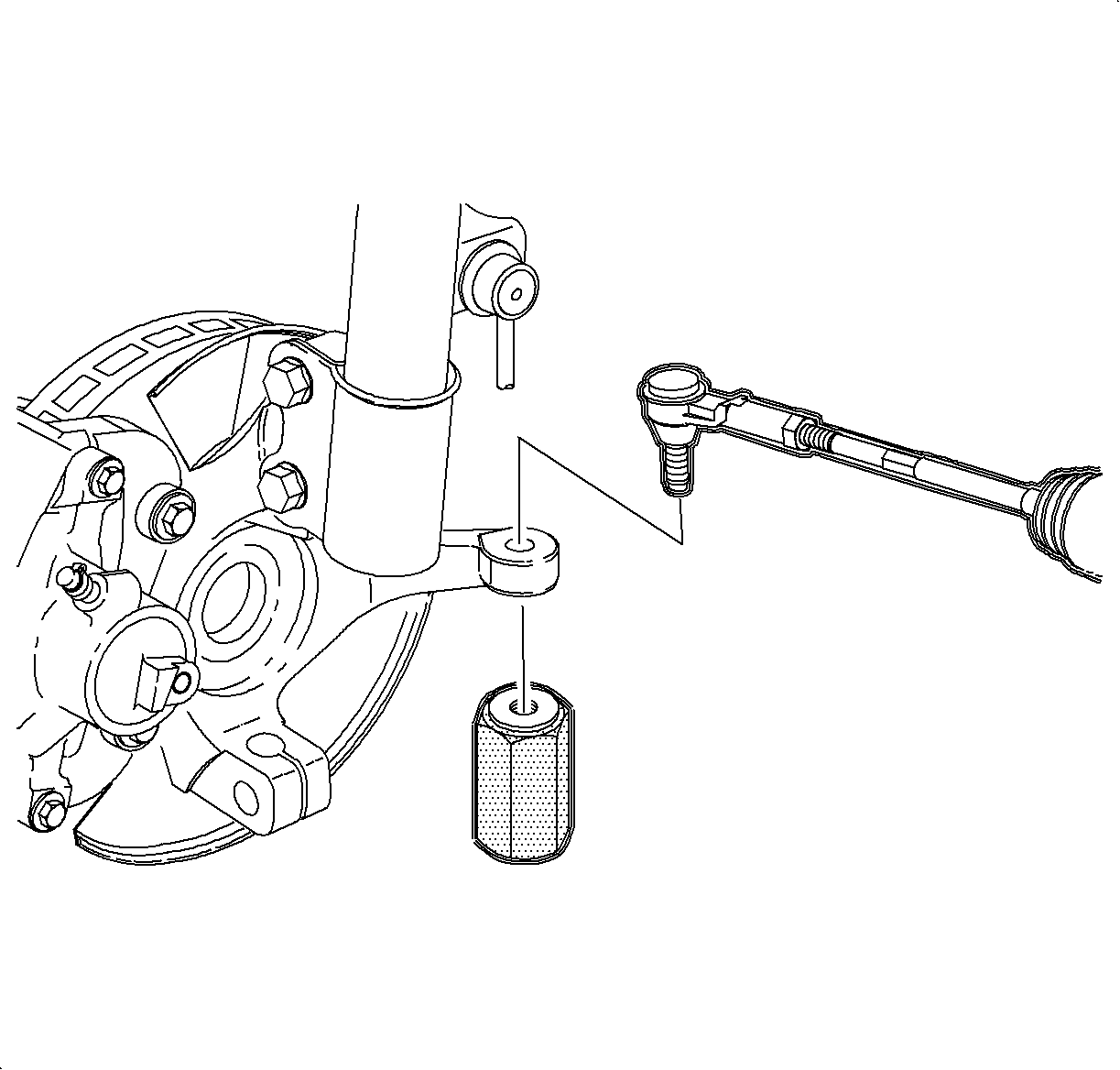
Tighten
Tighten the
J 44015
to 40 N·m (30 lb ft).

Tighten
Tighten the nut to 25 N·m (18 lb ft) plus 90 degrees.
Tighten
Tighten the nut to 205 N·m (151 lb ft).
